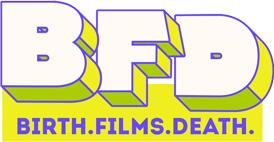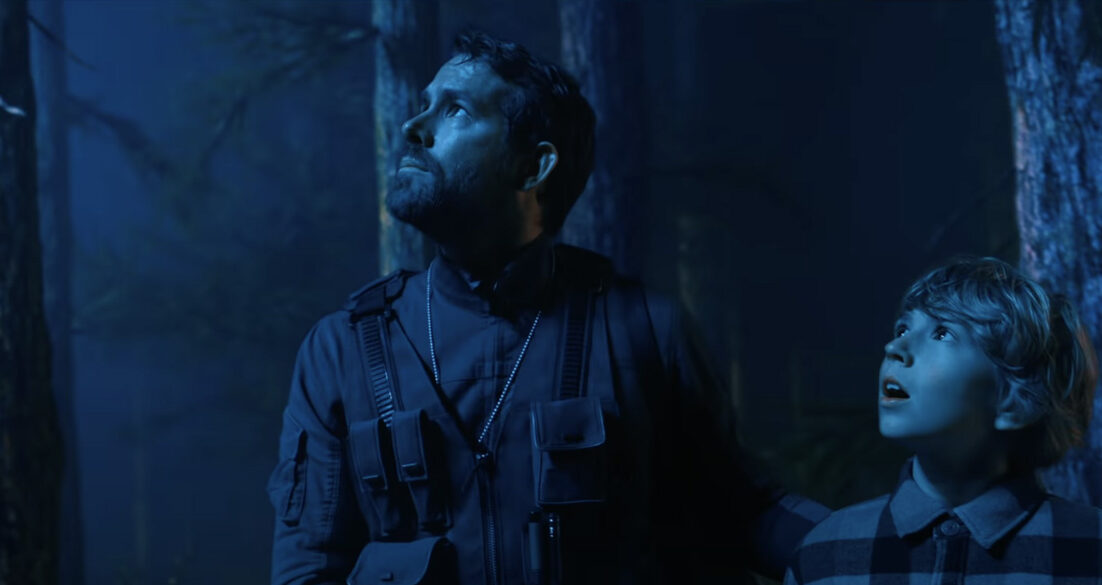Time flies. A time-traveling pilot teams up with his younger self and his late father to come to terms with his past while saving the future.
Director and producer Shawn Levy (Free Guy, Stranger Things) discuss the making of ‘The Adam Project’ — one of his most heartfelt projects to date — alongside producer and star Ryan Reynolds (Free Guy, Red Notice). Here, they explain how their previous creative collaboration laid the foundation of trust for the emotionally honest discussions about fathers and sons in shaping the script, the allure of wish fulfillment, and the power of nostalgia.
Shawn and Ryan, The Adam Project is your second creative collaboration off the heels of Free Guy. How did this reunion come about?
SHAWN LEVY: From our very first meeting on Free Guy, it was clear that Ryan and I had a great creative chemistry, not just as director and actor, but as fellow producers. We both like to take material and look for ways to make it better with the same tenacity and he cares about his projects the same way I do. So, it really became a brotherhood.
RYAN REYNOLDS: As soon as we finished Free Guy, our immediate question was, “What can we do next?” and The Adam Project just ticked every box for us. It was enough of a departure from Free Guy in tone and feeling, but still the kind of broad, audience-pleasing project we both love.
SHAWN: Of course, it also helped having Jonathan Tropper’s name on the cover page. I’ve been a rabid fan of his since I read his novel, This is Where I Leave You. I chased the rights for that book for over five years before I had the privilege of directing and producing the film. So, when I saw Jonathan had written this, I knew instantly it was going to be good. I knew that this was going to be a deeply humanist story because of Jonathan’s ear for real life and his sensitivity to human relationships and emotions.
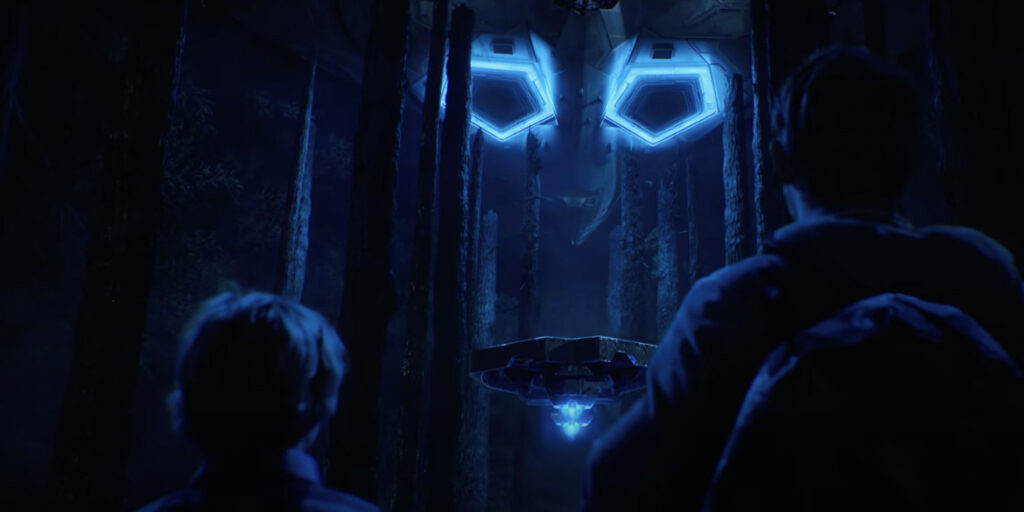
What was it initially about this story that attracted you?
SHAWN: What hooked me in was the idea of: What if you could make your peace with your own history? What if you could, as an adult, go back and make peace with your younger self, and make your peace with the parents we failed to understand when we were growing up? What if you could go back and reconnect with your parents with the benefit of a lifetime of wisdom and perspective? Because more often than not, when we think back to our parents, there are stories we tell ourselves. Either they were perfect or they were the villain in my backstory. But generally, neither is true.
RYAN: The movie ended up being very personal for me. My father passed away years ago and for a long time I told myself these stories about him that helped me make sense of my own deficiencies or shortcomings. But when I came to terms with the fact that those were just stories, I realized that the reason I was really mad at my father wasn’t because he was a bad guy or because had screwed up as a dad — it was because he died. I was actually mad at my father because he died. And I thought it was really interesting that my character, Adam, gets to go back and see his dad, not only when he’s alive, but when they’re at the same age. They get to look at each other as peers for a moment, not father-son.
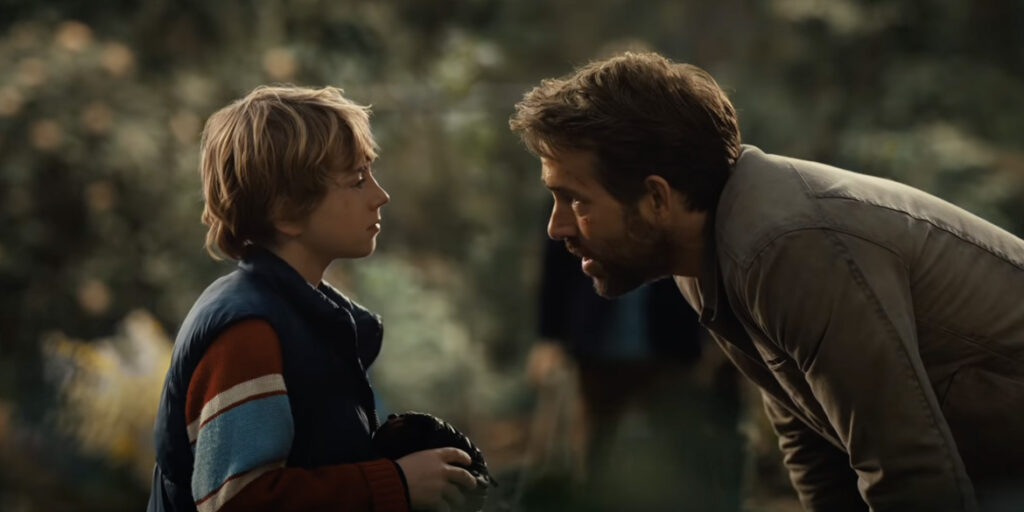
What was the process of revising the script like, given how personal the story was to each of you?
SHAWN: Jonathan Tropper and I met at Ryan’s house in New York where the three of us spent many, many hours talking about our own relationships with our fathers and suggesting ideas where we might dig deeper or have more fun. We definitely honed in early on this universal theme of the way men wrestle with anger towards their fathers, but aren’t able to step into a happy, grown-up existence until they forgive their dads for being human.
RYAN: It was an idea that I loved — the stories that we tell ourselves to make sense of our world around us — and we all found that we were a pretty good writing unit together. It was such a wonderful time and I actually wish I could get those days back! To me they felt sort of like the meta version of playing catch in the yard with dad. As hair-pulling and frustrating as it is to shape a story, it was truly magic that time we had together.
SHAWN: Ryan poured so much of himself into this story, too. There’s a beautiful scene in the film between Ryan’s character and his mom, played by Jennifer Garner, that’s really just an outpouring of Ryan’s own feelings about his mom that completely knocks you out. But at the same time, a lot of the ideas we discussed were also just pure fun, escapist ideas. Like, what if when soldiers from another time period die, they explode into something that looks like the equivalent of digital Skittles? Wouldn’t that be cool?
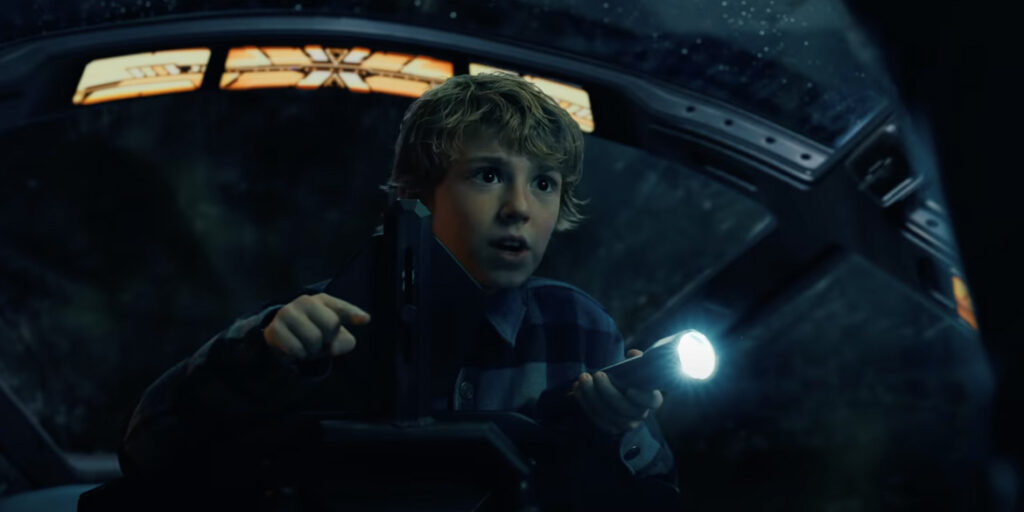
The Adam Project is nostalgic in a way that harkens back to a type of film we rarely see these days. What were some of your inspirations?
SHAWN: It’s definitely a throwback to a deeply nostalgic breed of Amblin film that, for me, epitomizes what I want movies to be: adventure-filled and wish fulfillment-fueled, but also funny and warm. The truth is, I feel like our storytelling and film industry has evolved to a point where there’s escapist popcorn movies or there’s movies about big ideas that are resonant and important. But the movies we loved from the past somehow were able to be both. Back to the Future is one. E.T. is another.
RYAN: Nostalgia is the greatest drug on Earth and this movie very much steps in the existing footprint of those films in that there’s a complete absence of narrative cynicism, an abundance of wonder mixed with comedy and levity, and just absolute gut punches of emotion. They also had this wonderful element of action and adventure. So the opportunity to actually make a movie like that — it was a hard thing to pull off, but it was worth it for both of us because it’s so personal. I have not personally done a lot of movies that really reflected my own life the way The Adam Project does.
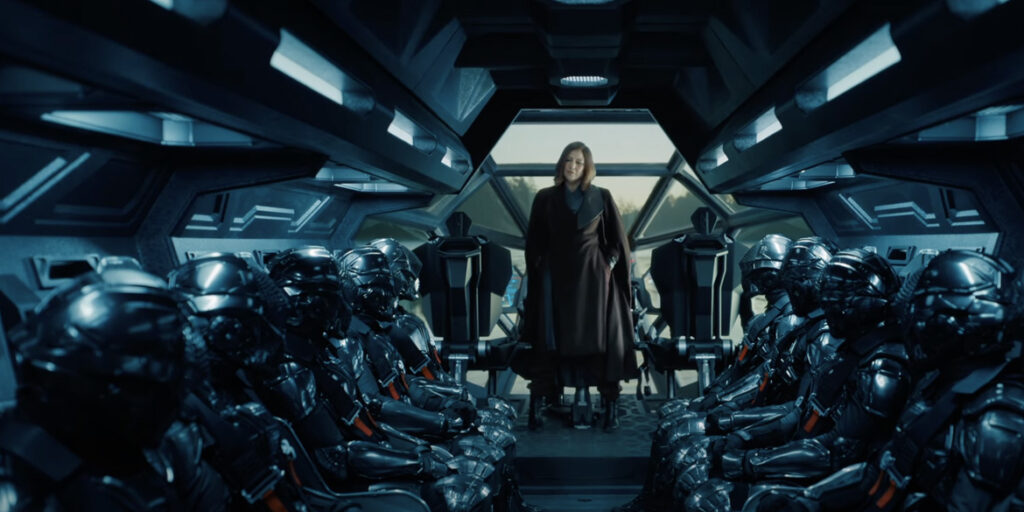
Shawn, this is the 13th feature film you’ve directed. What would you say is the constant in all of them (aside from picking great collaborators)?
SHAWN: Well, it’s taken me 13 movies to recognize that they’re all unabashedly built to entertain, but more importantly for me personally, they are always hopeful and warm-hearted. Even now, when I revisit my older movies, like Cheaper by the Dozen or Date Night or Night at the Museum, they all have that same warmth in their third act and they’re all decidedly non-cynical. I love movies that can take me on a ride and can usher me through different tones and feelings. Laughing one moment, crying the next. And I want that for my audiences, too. I always want to leave them feeling emotional and positive and The Adam Project felt like an opportunity to try that, and maybe, if we did our job right, pull it off.
Watch The Adam Project, only on Netflix March 11.
